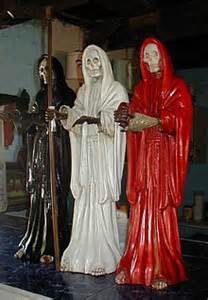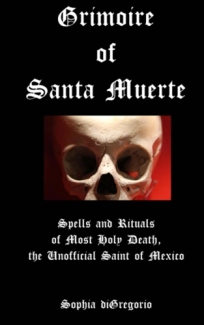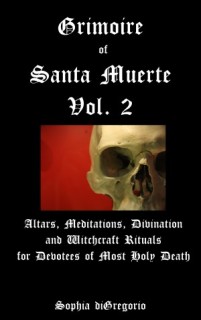 The following is an old witch’s advice for other witches, atheists, Satanists and independent thinkers who do not live in a supportive environment.
The following is an old witch’s advice for other witches, atheists, Satanists and independent thinkers who do not live in a supportive environment.
Since, at least, the 1990s when a form of witchcraft, Wicca, became mainstream, there has been a lot of discussion about “coming out of the closet” as a witch. This is usually a big question for teenagers or college students whose lives may be heavily dominated by their parents. But, it’s, also, a problem for many adults whose families, employers or general environment is dominated by religious fanatics.
Coming out of the closet is not a light consideration, nor should it be approached with a cavalier attitude. Once you’re out, it’s hard to get back in and the consequences can be very unpleasant, depending on your particular circumstances.
A lot of bigotry, some of the dangerous kind, remains in parts of the U.S. where Christianity dominates, although, if you live in a bigger city or a place like Salem, Massachusetts where witchcraft is celebrated, you might find it hard to believe. Similar intolerance may exist in other countries, as well.
If you happen to live in a less than forward-thinking place, considering the following ideas while you make your decision may be beneficial.
Click here to visit Psychic Powers and Magic Spells
Good Reasons for Staying in the Broom Closet
Even if the climate is not bad where you are now, this can change – and it has. The churches are businesses that exist with the benefit of billions of dollars annually in U.S. government taxpayer funds since George W. Bush signed the Faith Based Initiative into law by executive order. Many, also, enjoy 501-C-3 status with the IRS, which means they are classified as non-profit organizations. By claiming to be religious organizations and meeting certain standards, they are exempt from Federal and State taxation. This gives them a great advantage over other types of businesses and, as a result, they have grown abundantly in the past few years while other businesses have failed under the burden of taxes and, in some cases, the domination of Christian “morality.”
As they have grown fat on the back of the American taxpayer, they have grown more powerful. This means that where their influence was problematic a few years ago, in some places, it is becoming unbearable. In some parts of the Midwest, the South and in the Mormon Corridor, it is a challenge to find an employer or an employment situation that isn’t dominated by Christians, often very tyrannical, fundamentalist ones. If you are out of lockstep with them, you can lose your job. If you have a business, you can lose your customer base, if they find out you are not one of them.
If you conform or appear to conform to their “standards,” you won’t encounter many problems.
If you can run your business without it interfering with the laws established by the churches with regard to alcohol sales or certain types of entertainment, you are better off doing so.
For most people, witchcraft is a quiet personal practice and there is really no need to discuss it with anyone else. In your interactions with other people, let them make the first move toward any open discussion about the occult. Never initiate the discussion.
If you do have a few friends and hold meetings at your house, be discreet. If you have a spiritual development group, for example, you have a few friends who gather together each week to practice mediumship development or discuss occult-related subjects, try to keep your meetings low-key. You might even devise a cover story and tell outsiders that it is a “Bible Study” group. Religions are given special status and if people think you’re holding a Christian religious meeting, you won’t have any problems.
If you live in a heavily Christian area where people’s lives revolve around their church, you may want to devise a story to tell people who inquire about your “faith.” Usually, if you tell people you’re Catholic, the questions stop there. Many protestants don’t really like the Catholic Church, but they will respect a Catholic enough not to nag or harass them. Tailor your choice of cover story based on the area you live in.
Make a game out of dealing with Christians. If you have religious co-workers, keep them off the scent by throwing a little “Bless You,” or “Thank the Lord,” into the conversation at appropriate times. You can laugh quietly to yourself once their backs are turned, knowing that your privacy is being maintained and you are secure from being hassled.
Click here to visit Psychic Powers and Magic Spells
Tips for Staying Safely in the Closet Online and In Real Life
 The following are some ideas to consider if you want to guard your privacy online and remain in the broom closet, both online and in real life:
The following are some ideas to consider if you want to guard your privacy online and remain in the broom closet, both online and in real life:
If you have a job working for a Christian-dominated company, do not post on “anti-Christian” sites while at work. It can be traced by your employer and people have lost their jobs this way.
Always stay anonymous online. Never use your real name, disclose your location or family relationships or anything else that could identify you to someone who knows you. There are millions of people online, but it can become a very small world in some online communities. Furthermore, never post pictures of yourself, your family, your pets. Never talk about your work place or your school. People who know you may be able to identify you just from you giving too many details.
- Use different UserIDs.
- Do not integrate social networking sites with other social networking sites or your e-mail account.
- Use multiple e-mail accounts.
- Never give personal information that could identify you.
- Do not give information about your location.
- If you suspect someone is tracking you, leave disinformation crumbs.
- If cornered by your employer or anyone who could do damage to your life, remember the words of Bill Clinton, “Deny, deny, deny!”
What is bad about following this advice is that when everyone follows it, it can prevent you from connecting with people you know.
For instance, I joined a closed online witchcraft group once and recognized someone I knew and was friends with by his moniker and photo. I introduced myself and we re-established contact after a couple of years. If everyone is in the closet, it’s much more difficult to make these kinds of positive connections. But, especially, if you are vulnerable, you are better off staying in the closet and letting those who have less to lose by being out (for example, this guy is the head of a Satanic order and is something of an intimidating figure to many people) do so, then you can connect with them, as you like.
Click here to visit Psychic Powers and Magic Spells
Other Reasons for Staying in the Closet
 Peace of Mind: By staying in the closet, you enjoy more peace of mind. Not wasting time and energy dealing with people you don’t want to deal with gives you more time to focus on your personal goals.
Peace of Mind: By staying in the closet, you enjoy more peace of mind. Not wasting time and energy dealing with people you don’t want to deal with gives you more time to focus on your personal goals.
Privacy: Privacy is part of safety and security, online, at your job and in every aspect of your life. People cannot attack you very easily if they know nothing about you.
Related Article
Efficacy: It is often easier to get things done and to have influence, for example, within an organization, if you appear to be a team player. It is an easier position from which to try to persuade others to see things your way. If you come out of the closet in an “in your face” fashion, this will predispose others to oppose you in all matters.
You’re not going to change the minds of religious fanatics by being a good person or setting a good example as a witch (or an atheist). It is their goal to dominate other people and force them to conform to their “standards.” They don’t consider morality, decency, goodness or the content of a person’s character. If you have not accepted the redeeming blood of Jesus, they will regard you as “Satan.” Again, you may have a better chance of influencing them by remaining in the closet and playing along.
All of this advice is meaningless if you are fortunate enough to be living in a place dominated by educated, non-superstitious people who are grounded in reality. If you are not so fortunate, then you really must consider the danger that being out of the closet could pose to you, your safety, you family’s safety and your financial well-being.
Notes on the Regional Nature of The Problem of Intolerance of Witchcraft in the U.S.
The decision to come out of the broom closet or not is absolutely an individual choice. Each witch will have to realistically evaluate the environment he or she lives in to come to the right decision.
Coming out can be liberating and really seem like a relief. But, it can cause some problems, too.
The following is a famous example of what could go wrong:
Brandi Blackbear is a woman who was persecuted at a public school in Tulsa, Oklahoma back in 1999-2000, when she was 15-years old. Lifetime Movies did a dramatization of her story called “Not Like Everyone Else” in 2006. Brandi was not a witch, but her trouble began when she was caught reading a book on the subject of witchcraft from the library. Brandi suffered persecution at her school to an extreme until she received help from ACLU and hers became a landmark case upholding the 1st Amendment. She gave an interview in which she commented that what happened to her was partly related to the region of the country in which she lived. If she had lived in Seattle, WA or Salem, MA, it probably wouldn’t have happened.
Other Instances of Anti-Witch Discrimination and Modern Witch Persecution
You may notice that most of the victims listed below are Wiccans. Wiccans are often encouraged to live openly in Wiccan books, which is just not safe for everyone everywhere, as you can see.
The woman in this story objected to having to stand and bow her head in prayer to Jesus before city council meetings in South Carolina. She was prevented from speaking, then things got worse.
‘Wynne … said her home has been vandalized and townspeople have tried to forcibly “exorcise” demons out of her, poisoned her cats and threatened to burn her house. “They flipped over my refrigerator. They squirted ketchup and mustard everywhere. They’ve written ‘Die, witch.'” (“South Carolina: Witch Persecuted by Christians” By Austin Cline, About.com GuideAugust 11, 2004. http://atheism.about.com/b/2004/08/11/south-carolina-witch-persecuted-by-christians.htm)
Burnet, Texas has been the scene of two cases of witchcraft persecutions in 2003 and, again, in 2009.
In the first instance in 2003, Wiccans who ran a store in Burnet were threatened and eventually forced to leave town by the local Christians. The original KXAN report cannot be found, but an article, “The Persecution of Wiccans” by Austin Cline, remains at About.com:
“The group says they relocated to Burnet in April after pressure to leave from community groups in Kingsland. They say they’re receiving threats in one case to burn down their business.” (http://atheism.about.com/b/2003/08/03/persecution-of-wiccans.htm)
The original Austin-Statesman article about the 2009 event cannot be found, but a brief article by the same author as referenced above is found at About.com: Austin-American Statesman:
“Over the past 10 months, Allen said, threatening phone calls have poured in and strange cars have followed her home from her store at night. The police dismissed her requests for protection, she said. Allen also claims that in March, one Llano County sheriff’s deputy told her daughter that “we had a family practicing witchcraft awhile back, but we ran them out of town.” (http://atheism.about.com/b/2003/08/06/more-on-the-persecution-of-wiccans-in-texas.htm)
In South Carolina, a Wiccan couple endured extreme harassment from their neighbors and a government agency, DHHR, took their children. They had to sue the government to try to get them back after being accused of engaging in the human sacrifice of their own children.
“A family of Wiccans falsely accused of sacrificing their children during religious ceremonies sued the state’s Department of Health and Human Resources for allegedly harassing them and taking possession of their children.”
“The couple contends they have been continually harassed since moving to West Virginia in 1999.”
“On one occasion, DHHR officials and a State Police trooper were called to investigate an allegation that the couple had killed their youngest child in a sacrifice and were carrying the boy’s body with them. A later DHHR visit came from another false report that the couple’s children had been sacrificed.” (“Wiccan family files suit against DHHR” by Charles Shumaker “The Charleston Gazette,” July 28, 2004 http://wwrn.org/articles/9560/?&place=north-america§ion=occult)
Another case from 2008 highlights the dangers of living openly as a witch when you have children and how government agencies that purport to protect children can be manipulated by persecutors. A family was completely torn apart and forced to flee as fugitives because of false reports to the Department of Social Services (DSS) by their Christian neighbors. (“Pagan Persecution a National Travesty” by Lady Passion, High Priestess, Coven Oldenwilde, Asheville, NC Published February, 2008, in Oracle 20/20 Magazine. http://oldenwilde.org/oldenwilde/members/lady-passion-articles/pagan-persecution-a-national-travesty_part-1.html)
Sometimes the harassment is not as overt, but it can still be very damaging. The following is an example of how witches may be undermined or sabotaged at work. TSA worker, Carole Smith was fired from her job under the pretense of poor job performance, but it seems likely there were other reasons. As a person of integrity, she was concerned about lax security at the airport and became a whistleblower. She was, also subjected to witchcraft accusations by co-workers:
“A co-worker even complained that Smith cast a disabling spell on the heater of her car one snowy evening,” (“Wiccan Lawsuit: Carole Smith claims TSA fired her for being a ‘witch'” by Larry McShane, Daily New Staff Writer, March 31, 2011 http://articles.nydailynews.com/2011-03-31/news/29386452_1_tsa-wiccan-witch-hunt)
Some witches do not feel safe or comfortable telling their own family members about their witchcraft practice. The following article is from the New York Times:
“A stay-at-home mother of two in Northern Virginia who was raised Southern Baptist keeps her Wiccan faith secret. Not even her mother knows.” (“Wiccans Keep the Faith With a Religion Under Wraps” by Stephanie Kuykendal, The New York Times, May 16, 2007. http://www.nytimes.com/2007/05/16/us/16wiccan.html)
Learn More About Staying Securely in the Broom Closet
 Learn more about importance of privacy, especially financial privacy and how to obtain more of it when you read Sophia diGregorio’s newest book, Traditional Witches’ History of the Occult Banking System: How Witches and Occultists Can Use Bitcoin and Altcoins for Privacy and Anti-Discrimination, available for sale on Amazon.com for Kindle readers and in paperback. Also, it is available from Barnes & Noble for Nook.
Learn more about importance of privacy, especially financial privacy and how to obtain more of it when you read Sophia diGregorio’s newest book, Traditional Witches’ History of the Occult Banking System: How Witches and Occultists Can Use Bitcoin and Altcoins for Privacy and Anti-Discrimination, available for sale on Amazon.com for Kindle readers and in paperback. Also, it is available from Barnes & Noble for Nook.
Explore a whole new world of ideas! Join The Occult Files of Sophia diGregorio cryptocurrency-based patronage program.
Also….

The Occult Files of Sophia diGregorio – Free ebook!
Listen to The Occult Files monologues.
Read the free ebook, The Occult Files of Sophia diGregorio Bitcoin and Altcoins Patronage Program: How to Join our Cryptocurrency-Based Patronage Program and Why We Are Doing Things This Way, in epub, mobi, or pdf formats at the official blog: The Occult Files of Sophia diGregorio WordPress blog.
Click here to visit Psychic Powers and Magic Spells
(Note: This article was updated on January 10, 2019.)



























You must be logged in to post a comment.